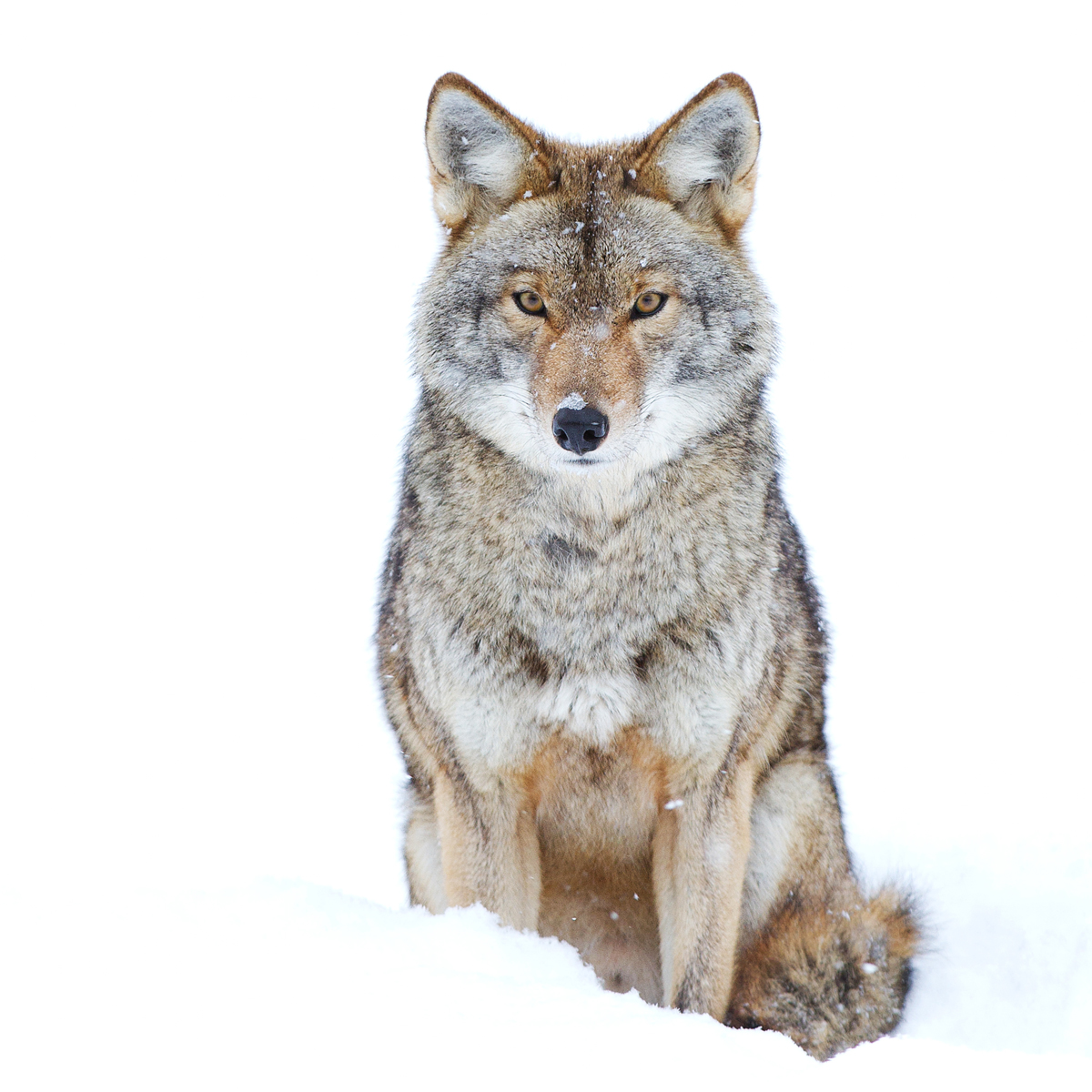Get smart about coyotes

Over the past few months, the Town of Caledon has received an increased number of calls from residents about the presence of coyotes. It is important that residents understand coyote habitat, how to deter coyotes from coming on your property and what to do if you come in contact with them.
Why do we have coyotes in Caledon?
The rolling hills of Caledon, with a population of over 71,000, is spread over 700 square kilometres and includes 260 km of publicly accessible trails and more than 65 parks. Coyotes are very adaptable and can do well in any forested area that includes forest areas. They are known to live in natural valley lands, ravines and urban parklands.
How do I prevent coyotes from coming on my property?
- Properly store and maintain garbage containers.
- Remove pet food left outside.
- Avoid composting meat products. The smell of the meat will attract the animals to your property.
- Do not approach or feed coyotes. Coyotes are wild animals, but can become more comfortable with humans as a result of regular contact.
- Remember that bird feeders attract birds, squirrels and rodents, which may attract coyotes.
- Motion-sensitive lights in yards or gardens will deter coyotes from coming on your property.
- Whistles, alarms or loud noises will likely scare coyotes away if you see them on your property.
What should I do if I come into contact with coyotes?
- Stay calm and wait until it moves on.
- Make yourself appear larger and make a loud noise to scare them off.
- Don’t turn your back. Don’t run. Instead, back away and remain calm.
- Never approach or touch a wild animal.
- If it poses an immediate threat or danger to public safety — call 911.
What about my pets?
If you have dogs or cats, here’s what you can do to keep them safe:
- Keep dogs inside at night.
- Clean up after your dog. Coyotes are attracted to animal feces.
- Spay and neuter your dogs. Coyotes are attracted to, and can mate with, domestic dogs that have not been spayed or neutered.
- Build a dog run. A properly constructed dog run can help keep your pets safe, whether your yard is fenced or not.
- Keep cats indoors at all times.
- When out walking your pets, ensure they are kept on a short leash or enclosed in your yard.
Can I have coyotes removed from my property?
In order to have wildlife removed from your property, contact a wildlife control agency. Keep in mind, though, that coyotes are extremely intelligent and almost impossible to live trap.
Ontario Provincial legislation prohibits the relocation of wildlife from their home territories. Therefore, trapped animals must be released in the same area or destroyed. Research shows that wildlife relocated from urban areas will typically return to their home range. When coyotes are hunted and killed, the population will compensate by producing larger litters and expanding their range.
Quick Facts
- The Coyote is a small relative of the wolf, averaging in weight between 30 and 40 lbs. They are very active at dusk, dawn, and throughout the night. Coyotes do not hibernate and may be seen all year round. Generally, they are shy, cautious, and non-confrontational but can be curious and experimental.
- They breed in late winter. Pups are born in the spring, are weaned at six weeks and leave their parents in autumn to find their own territory. They don't form packs the way wolves do. If you see them in a pack, it is likely a group of siblings.
- Coyotes cause problems in rural areas because they are predators to livestock. In urban areas, they may damage gardens, forage through garbage and possibly prey on cats and dogs. They prey on domestic animals as food and to eliminate a threat to their territory or pups. However, they also benefit agricultural and urban areas by helping to control small mammals, such as mice, rabbits, groundhogs and woodchucks.
Contact
For more information, contact the Ministry of Natural Resources and Forestry toll free at 1.800.667.1950 or visit www.mnr.gov.on.ca.
If a coyote is posing an immediate concern of public safety, please contact Caledon OPP at 1.888.310.1122.



 Subscribe to this page
Subscribe to this page